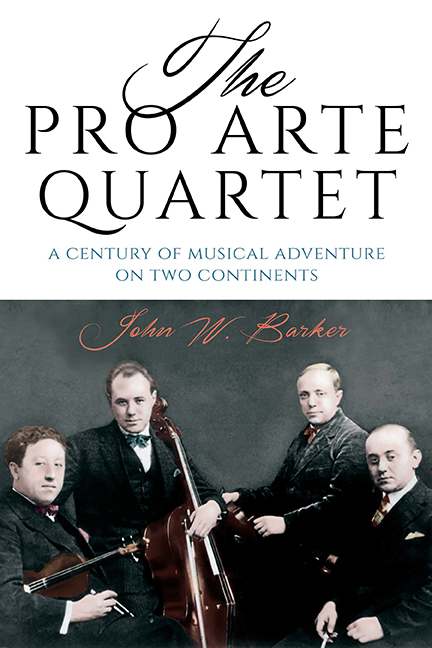Book contents
- Frontmatter
- Dedication
- Contents
- Preface
- Lists of Quartet Membership
- Introduction: Quartet Contexts
- 1 The Onnou Years, I (1912–31)
- 2 The Onnou Years, II (1932–40)
- 3 The Brosa Years (1940–44)
- 4 The Kolisch Years (1944–67)
- 5 The Paulu Years, I (1967–79)
- 6 The Paulu Years, II (1979–95)
- 7 The Perry Years (1995–Present)
- Conclusion: Retrospect and Prospects
- Appendixes
- Selected Bibliography
- Index A Composers
- Index B General
7 - The Perry Years (1995–Present)
Published online by Cambridge University Press: 10 June 2021
- Frontmatter
- Dedication
- Contents
- Preface
- Lists of Quartet Membership
- Introduction: Quartet Contexts
- 1 The Onnou Years, I (1912–31)
- 2 The Onnou Years, II (1932–40)
- 3 The Brosa Years (1940–44)
- 4 The Kolisch Years (1944–67)
- 5 The Paulu Years, I (1967–79)
- 6 The Paulu Years, II (1979–95)
- 7 The Perry Years (1995–Present)
- Conclusion: Retrospect and Prospects
- Appendixes
- Selected Bibliography
- Index A Composers
- Index B General
Summary
Redefinitions
The current phase of the Pro Arte Quartet's history began with another major personnel transformation, with both the violin chairs occupied by new players. They came with close prior associations: they had been, respectively, concertmaster and principal second violin of the same orchestra, the Wichita Symphony.
Both before and since his joining the Pro Arte, David Perry was building a career of national dimensions as one of America's finest violinists of our time. He acquired a particular reputation for precision of playing and absolute accuracy of intonation—one colleague quipped that Perry “has never visited the spaces between the notes.” He studied at Juilliard with Dorothy DeLay, won notable prizes, and pursued a lively career as an ensemble leader, with only marginal activities as a soloist. He became concertmaster of several orchestras, including that at the Aspen Festival, and he was active with the Orpheus Chamber Orchestra. While in Wichita he was first violinist of the local Fairmont Quartet, and also taught on the faculty of Wichita State University.
Born in Reno, Nevada, Suzanne Beia was something of a childhood prodigy. She served as concertmaster for several orchestras, not only in her native city but in others around the country. She has also worked in chamber ensembles, notably the Sedgwick String Quartet in Wichita. Because of her limited academic record, she was not given full faculty status, but instead has fifty-percent status at the University of Wisconsin for performing and coaching as an artist in residence—a status that all members of the quartet hold for half of their budgetary positions. One feature that was established at the outset of the Perry years—and at his insistence—is that performance activities were to be suspended during the summer months. The few summer ventures that were undertaken represent exceptions that prove the rule. In effect, the Pro Arte has become an ensemble for the academic year only. (Perry is active at Aspen, Colorado; both he and Chisholm also perform at Door County's Midsummer Music, while she has also become involved with other summer festivals, notably the famous one at Marlboro, VT; Beia plays with summer groups in Madison, while Karp has involvements in Colorado and Hawaii.)
- Type
- Chapter
- Information
- The Pro Arte QuartetA Century of Musical Adventure on Two Continents, pp. 217 - 241Publisher: Boydell & BrewerPrint publication year: 2017

